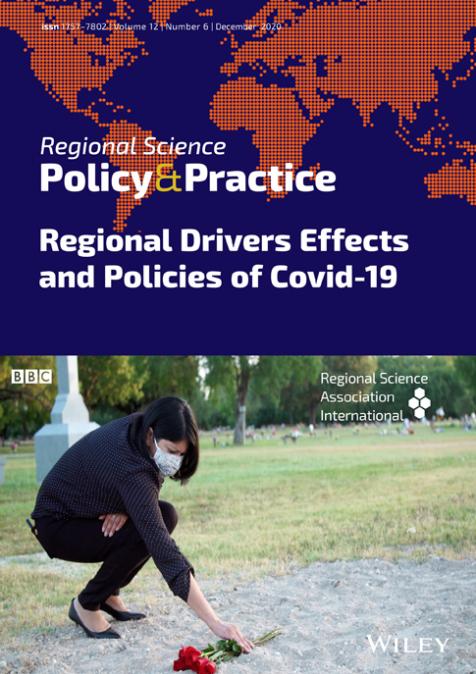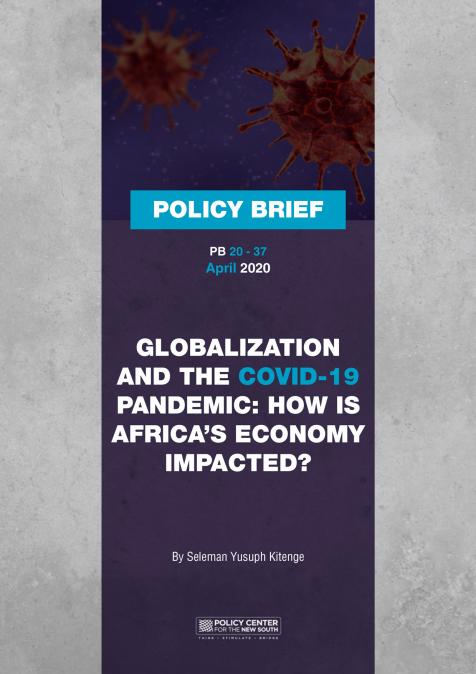Publications /
Opinion
Tourism is considered one of the hardest hits by the COVID-19 outbreak. The sector is experiencing a rapid and sharp drop in demand and a surge in job losses at global level, putting many SMEs at risk. Despite tourism’s proven resilience in responses to other crisis, the depth and breadth of the current pandemic will likely have a longer lasting effect on international tourism compared to other industries, more likely to recover once major restrictions will be lifted. This is also due to the potential long-term changes in behaviors with people likely to become more cautious about travelling overseas in the future.
Impact Across the World
According to the World Tourism Organisation (UNWTO)[1] the international tourist arrivals will be down by 20% to 30% in 2020 when compared with 2019 figures, equivalent to a loss of 300 to 450 US$ billion in international tourism receipts (exports) – almost one third of the US$ 1.5 trillion generated globally. The direct contribution of the travel and tourism industry accounts today for 3.3% of the total global GDP and 4.4% in OECD countries (average) with picks of 14%, 13% and 18% for countries like Spain, Italy and Greece respectively[2]. Some countries are predicted to face more substantial blows than others due to their high reliance on the sector especially when considering an interesting comparison: out of the top 10 destinations by international tourists arrivals (France, Spain, United States, China, Italy, Turkey, Mexico, Germany, UK and Thailand), 8 result to be the hardest hit by COVID-19, implying that the economic shock on tourism will be further exacerbated in these countries.
According to the latest estimates, Asia will see the highest overall drop in travel and tourism revenue in 2020, with China accounting for the lion’s share of lost revenue[3]. In Europe, where the tourism industry employs around 13 million people, around €1 billion in revenues per month is expected to be lost as a result of coronavirus, with Italy and Spain as countries most affected. Italy is likely to close the year with 60% less presences compared to 2019, levels equivalent to those registered in the 1960s, when the world was divided in blocks and air travels was a luxury for a few[4]. The Spanish tourism sector would experience losses of around €55 billion by 2020 with Catalonia expected to be the region most affected registering a loss in tourism turnover of almost €11 billion [5].
Another group of countries heavily impacted are the so called SIDS (Small Island Developing States) not only because the tourism sector accounts for almost 30% of their economy, but also because any shock of such magnitude is difficult to manage for small economies without the alternative sources of foreign exchange revenues necessary to service external debt and pay for imports. Strong shocks will also affect Sub-Saharan Africa where one out of twenty workers belongs to the tourism sector: a recent study from the African Union[6] estimates that the tourism and travel sector in Africa could lose at least $50 billion due to the pandemic outbreak and at least 2 million direct and indirect jobs, with devastating effects for tourism spots like Seychelles, Cape Verde, Mauritius and The Gambia will shrink at least 7%.
Tourism Labor Market
The World Travel and Tourism Council (WTTC) forecasts that up to 75 million jobs are at risk in the sector[7]. This estimation is even more worrying when we reflect on the fact that tourism is a leading job creator for those vulnerable segments of population: in fact, a far higher share of low-skilled immigrants, women and students are employed in tourism compared to the total non-financial business economy[8].
Other specific features make tourism as particularly sensitive to economic shocks. Concentration of SMEs in tourism industries is much higher than other industries: SMEs are likely to have less resilience and flexibility to cope with the costs and burdens that these shocks entails. In addition, given their often-limited resources and existing obstacles to access capital and to adopt technological innovations, the period over which SMEs can survive a shock will likely be shorter than for bigger firms. Another element is the high seasonality and instability of the jobs: the likelihood of occupying a temporary job is significantly higher in tourism than in the total non-financial business economy which is translated in lower social security schemes and benefits for workers. Finally, the high interdependence, yet variegation of tourism services implies that a crisis in one area brings disastrous follow-on effects on the whole tourism value chain.
Policy Responses
Continuous efforts are ongoing in order to implement effective policy responses to preserve the sector and trigger international coordination, as meant by the two most recent meetings between G20 and EU Tourism Ministers on April 24th and 27th respectively. So far government responses can be broken down into three main categories although significant differences in ambition, intensity and level of government backing exist across countries[9].
1. One category concentrates in ensuring a fair balance of interest between the protection visitors (e.g. information, consumer protection, repatriation assistance) and tourism workers (e.g the provision of income support).
2. The second aims to ensure business survival along the whole supply chain, and with a special focus on SMEs.
3. The third area of intervention focuses in co-ordination mechanisms including taskforces and co-ordination measures to better target responses and support sector recovery.
While today it is too early to assess whether these measures will be effective, a number of observations can be drawn. First, governments need to implement measures in rapid and transparent way as to allow an immediate and simplified access to finance benefiting a maximum of the workers affected. Second, these interventions need to be regularly monitored in order to enable sound empowering strategies for industry operators and in particular SMEs across all phases of the crisis. This means providing support not only to compensate for loss of revenues but also to provide guidance on standards and protocols for businesses to re-open, adapt and access new markets as well as to enhance SMEs entrepreneurial potential and spur processes of collaboration. Thirdly, industry operators need to show strong creative, innovation and resilience skills as to put in place innovative solutions to rebuild a sustainable tourism industry. Entrepreneurial ideas for destinations, for products and sales and in general for new business models will be key to help the sector mitigate the impact of the pandemic and kickstart effective recovery efforts. These reflections will necessarily have to start from a deep understanding on how to revamp domestic tourism, which even if will not compensate for the decline of international tourism flows, will be crucial to revamp the economy. Coordinated approaches with other connected sectors heavily hit by the crisis, like the creative and cultural ones, will be of essence to make the recovery successful. Finally, it is paramount for policy makers to use the COVID-19 outbreak to improve crisis management strategies and strengthen international and domestic co-ordination mechanisms and mutual learning across regions and tourism sub-sectors to rethink a more sustainable and resilient tourism system and to respond united to any future shocks.
Paola is an alumna from the 2016 Atlantic Dialogues Emerging Leaders Program.
[3] https://www.statista.com/forecasts/1103432/covid-19-revenue-travel-tourism-industry-country-forecast
[4] http://www.assoturismo.it/assoturismo-cst-nel-2020-si-perderanno-oltre-260-milioni-di-presenze-turistiche-60-ripresa-solo-nel-2021-forse.html
[5] https://elpais.com/economia/2020-04-01/exceltur-calcula-una-perdida-de-mas-del-30-del-negocio-turistico-a-causa-del-coronavirus.html
[6] https://www.un.org/africarenewal/magazine/special-edition-covid-19/au-study-covid-19-could-cost-africa-500-billion-damage-tourism-and
[7] https://wttc.org/en-gb/About/About-Us/media-centre/press-releases/press-releases/2020/latest-research-from-wttc-shows-an-increase-in-jobs-at-risk-in-travel-and-tourism








